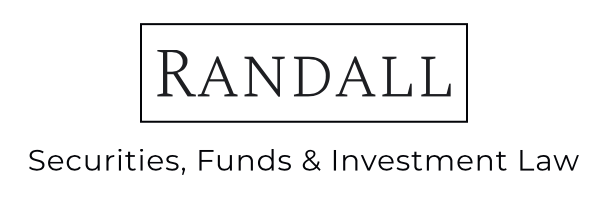What Is A Form D?
The FORM D, also known as “Notice of Exempt Offering of Securities” is a disclosure document filed with the SEC. The FORM D is a public document that notifies the SEC and the public that a private fund, like a real estate fund or hedge fund, has raised money from investors. The FORM D contains information about how much money the fund raised, what types of investments the fund is going to invest in and who is in charge of the fund, i.e. the “issuer”.
Filing a FORM D helps the SEC and other state securities agencies make sure that the public and investors are receiving the appropriate disclosures about private investments and comply with anti-fraud rules. FORM D’s and other similar types of SEC disclosures can be found and read by the public on the SEC’s public database called EDGAR. The link to the EDGAR data base is www.sec.gov/edgar
Who Needs To File A Form D?
Filing a FORM D is a requirement under Regulation D, Section 4(6), and/or the Uniform Limited Offering Exemption of the Securities Exchange Act of 1933. Basically this means that under federal (and often state) securities law, filing a FORM D is a requirement when you are raising money and are relying on Regulation D as your exemption for full registration. Regulation D covers private placements which are the most common fund-raising vehicles used by private equity, hedge funds, venture capital funds, and real estate funds.
The SEC requires that the FORM D be filed electronically using the EDGAR online application within 15 days of the sale of the first security, or in other words, within 15 days of receiving your first investment. It is important the the FORM D be filed on time and correctly to avoid any complications with the SEC or similar state securities agency.
DON’T FORGET ABOUT STATE “BLUE-SKY” REQUIREMENTS!
Filing a Form D is an important step when raising money for an investment fund or as part of raising money for a start -up business. However, it’s just as important to remember that each state has its own similar filing requirement and it is important to file that state’s equivalent of a Form D with each state in which one of your investor resides. For example, if your crypto currency fund has an investor from Arizona and another from North Carolina, then it is critical that both state securities laws are reviewed and that whatever forms each state requires are filed correctly and on time.
Randall & Associates has experience helping fund managers and businesses raise money the right way, which includes making sure each compliance document is correctly and timely filed with the SEC and the applicable states. Contact us today for a free strategy session on the best way to raise money and manage your next investment fund or start-up. CALL (435) 612-0422



